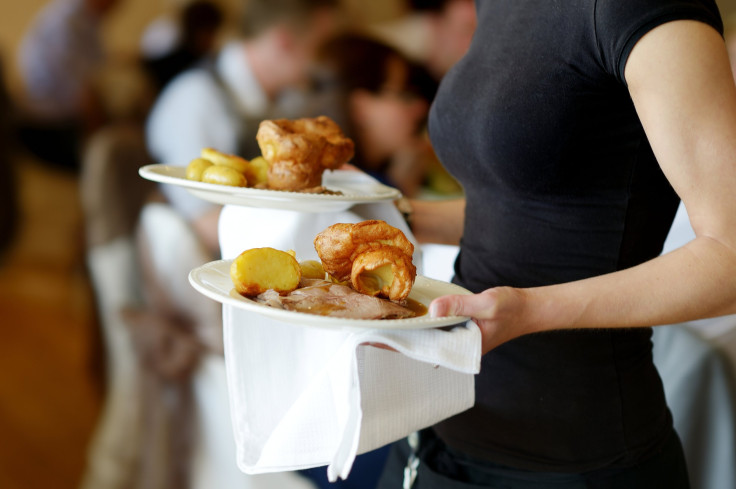Tipping And Sexual Harassment: Restaurant Industry May See Highest Rates Due To Cash Constraints

A recent study has given a bit of insight into what the average U.S. restaurant worker has to deal with on a daily basis, and it seems that in America, employees of food eateries are more likely to be the victim of sexual harassment than workers in any other industry. The study, although not yet peer-reviewed, poses the important question: What is it about American culture that makes it “OK” to sexually harass your server?
The study, titled "The Glass Floor: Sexual Harassment in the Restaurant Industry,” found that sexual harassment of restaurant servers was prevalent in both sexes, but an astonishing 80 percent of female workers who partook in the study admitted to having experienced some form of sexual harassment at some point during their restaurant career, Jezebel reported. The study was conducted by Forward Together, an organization that works with community leads and organizations to transform culture and policy to catalyze social change, and Restaurant Opportunities Centers, along with various other organizations and groups.
While restaurant workers, in general, were shown to be the victims of a significant amount of sexual harassment, the study revealed that this sexual harassment increased in workers in the 43 states that use a tipped sub-minimum wage. For those who are not in the restaurant business, in every state but California, Nevada, Oregon, Washington, Montana, and Minnesota, restaurant workers do not get paid the minimum wage due to the fact that they are compensated by their tips. The workers are either paid the federal tipped minimum wage of $2.13 or slightly above this but not quite the $7.25 that all non-tipped workers are required to be paid.
Sexual harassment was defined as a number of different categories. Of the 688 employees who participated in the study, 30 percent reported that female workers were required to wear different uniforms their male counterparts, and at times even asked to “dress sexy” in order to generate more tips. This differentiation in uniforms nearly doubled the rates of sexual harassment. Other forms of harassment included sexual teasing and jokes, pressure for dates, suggestive looks or gestures, and deliberate touching, leaning over.
The researchers behind the study suggest that America’s tipping culture may be partly to blame for the prevalence of sexual harassment in food industries. Some of the restaurant workers reported feeling more like they were able to step up and ask the sexual harasser to stop when they weren’t relying of tips to make up the majority of their wages, Jezebel reported.
In many other countries, servers are not tipped by the customers but rather paid an equal wage by their employers. ROC founder Saru Jayarman even went as far as to add that America’s habit of tipping may demean the servers and suggest that they are not actually professional workers. “We don't take service seriously as a profession, that we don't pay workers what they deserve...[it] is an indication of what we feel about the value of women's work itself," Eve Ensler, founder of One Billion Rising, and cooperator in the study, explained.
Published by Medicaldaily.com



























